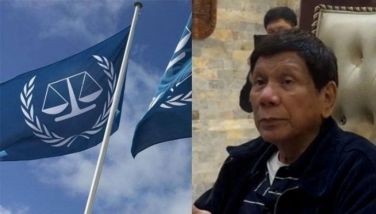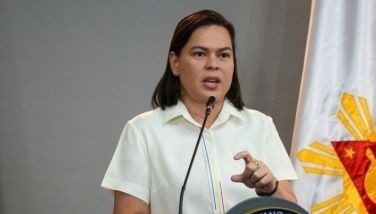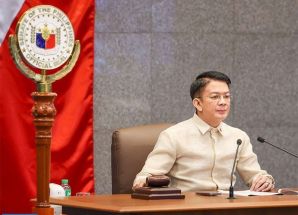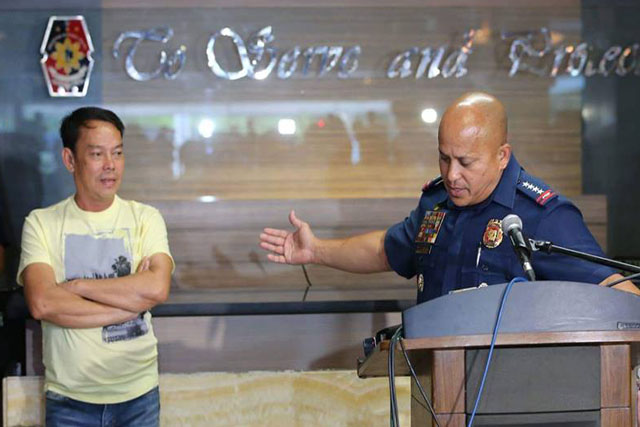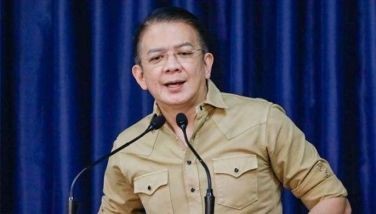Remembering Chito
(Part 2)
As accomplished as he was as a journalist and as a professor, Chito seemed born to be a diplomat. He could speak his case without antagonizing other parties. He could get into an argument without raising his voice or digging into words that hurt. I’ve seen him work a room of strangers and charm them. He had the gift of making every person feel like he – or she – were the only person he wanted to address at the time. Even in casual talk, he would look you in the eye, smile, nod attentively. He sometimes kept this eye contact going even when he was behind the wheel. Fearing an accident, I would typically look straight ahead at the road, chatting with him while avoiding his eyes.
He was a consummate conversationalist. Whether it was “natdem,” the “Cultural Revolution,” the “Four Cardinal Principles of Socialism” or “diplomatic hedging strategy,” Chito could always offer explainers. He was good at talking but even better at listening. He could be friends with people he disagreed with. Couple that with his lack of prejudice, his avoidance of negative chatter about others – and you had a consummate diplomat.
Indeed, in 2016, Chito was appointed Philippine ambassador to China. We joked that his easy charm may have played a part, but we knew it was his extraordinary knowledge of China that clinched the job. Yet I knew that accepting the appointment had not been easy for him. He had turned 70, retired and at home looking after his wife Nancy, bedridden since a stroke in 2015. Chito had to make extraordinary arrangements to even begin to consider the offer: making certain Nancy received the meticulous care she needed; creating an environment supportive of his two adult sons, Norman and Christopher.
He knew, of course, that no one wanted the posting. “It’s a tough job,” he told me in a chat soon after he became ambassador. Two previous career ambassadors, both in their early seventies, had to cut short their tenure after they fell ill under the stresses of the job. Philippine-China relations had been in the doldrums since 2013, when President Benigno Aquino III filed an arbitration suit against China on the territorial dispute over the West Philippine Sea. By 2016, relations had plunged into deep freeze after the Permanent Court of Arbitration at The Hague ruled in Manila’s favor, with Beijing refusing to accept the judgment. But in the end, seeing this as a moment to serve people and country, Chito took the job. By then, he had no need for an official Chinese interpreter even for top-level government talks. He knew China’s history and politics, culture and sensitivities, backward and forward. When he took up the post of Philippine ambassador to China, he was perfectly ready.
To me, Chito will always be bigger than the sum of his accomplishments and gifts. He was, I always say, a good man. A good man loyal to his country, people, family and friends.
A former student activist was sick and needing financial assistance? He would be first to suggest we pool money to help. A friend has died? He would have the lot of us buy a wreath. There’s a reunion of classmates and activists of old? He would be there, eager to catch up. When my wife Ana got very sick with the alpha strain of COVID in April 2021, Chito was promptly texting her: “Wishing you a quick recovery! Take good care.” A few seconds later adding: “Ingat din Jimi. Take care & stay safe.” These moments may seem small, but to Ana and I, they meant the world.
And Chito had his quirks, too. (Which, truth to tell, I liked. It made him human.) His food loyalties were legendary. Our regular Sunday brunch was coming up? We had visitors to entertain in Beijing? When he could choose the venue, he always went for the Wangshunge Fish Head Restaurant because it served fish head as big as a platter paired with baked pancakes. He also always ordered a plate of fried frog legs. Equally legendary were his curiosities. He was like a small boy, eyes all lit up, asking a visiting friend about Pinoy showbiz and actually remembering the names of the stars. His was a curiosity about everything. And it erased any arrogance that may have attached itself to someone so accomplished.
Chito was also Mr. Clean. There never was a whiff of suspicion in his decisions and dealings. The higher he rose, the higher the temptation, I gather. He would’ve been approached by “brokers” asking that he endorse their businesses and by “entrepreneurs” looking to make money out of embassy projects. Chito stayed clear of them.
Brought together by exile, Chito, Eric and I have kept close. That bond has been intimate and something we brought into the lives of our families. Since the 1980s, when we all lived and worked in Beijing, our families traditionally gathered for Sunday brunch. Our children, now living in different cities in the world, still remain their own special friends.
A month before he died, Chito invited me and Ana to have brunch, a tradition we’ve kept for 30 years. He was briefly back in Manila for work consultation. He was looking forward to wrapping up his tenure, he said, with that broad smile that almost made his eyes disappear. He ordered a meal of yoghurt, bread, slices of fruit. He was keen to return to Manila, go back to his interrupted retirement, and personally look after his wife. He planned to fly home on July 1, when a new administration takes over. I was happy for him. He was ending his career on a high note.
As our envoy to China the past six years, Chito had steered the floundering bilateral ties into a robust, multifaceted relationship. Thanks to his knowledge of China and his even-keeled temperament, he handled even the prickliest problems well. The Department of Foreign Affairs recognized his value. “Under his distinguished tenure,” the DFA said in announcing his death, “Philippines-China relations flourished despite differences.”
Chito summed up his patriotism in SERVE, a book to be published by our group of College Editors Guild alumni. “There have been numerous milestones and achievements during my diplomatic assignment,” he wrote in his chapter. “But if there is one thing that I am proud of, it is this: to have played a frontline role in building a bridge of friendship and cooperation between the Filipino and Chinese people that transcended any differences and contributed to regional stability and prosperity. For, after all, what is diplomacy for, if not to serve the people and promote the country’s interests?”
Through the years until his last days, Chito selflessly served our country and people. Always, he proudly waved the Philippine flag.
I am proud of Chito. I will miss him.
* * *
Jaime FlorCruz is currently an adjunct professor at Peking University and also teaches at the Asian Center of the University of the Philippines.
- Latest
- Trending























